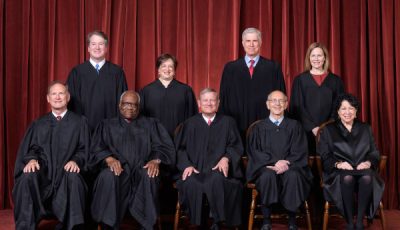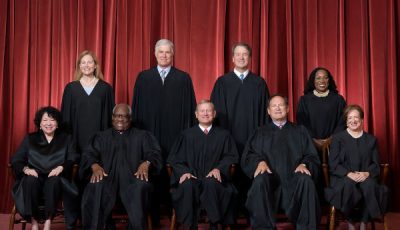After Delay, Lawsuit Against GirlsDoPorn.com Moves Ahead
 SAN DIEGO – In a case which began with the filing of a complaint in 2016 by several Jane Doe plaintiffs, the operators of the adult site GirlsDoPorn.com stand accused of misleading the plaintiffs into performing in adult videos, in part by allegedly intentionally misrepresenting where and how the videos would be published and distributed.
SAN DIEGO – In a case which began with the filing of a complaint in 2016 by several Jane Doe plaintiffs, the operators of the adult site GirlsDoPorn.com stand accused of misleading the plaintiffs into performing in adult videos, in part by allegedly intentionally misrepresenting where and how the videos would be published and distributed.
In a complaint originally filed in 2016, the plaintiffs (which numbered four at the time) stated that the “young women appearing in The Defendants’ amateur pornography come from good families, have never appeared in pornography before, are often paying their way through school, and are just beginning their careers and adulthood.” The complaint asserts that with such backgrounds, “there is only one way The Defendants can convince these women to have sex on film: The Defendants lie to them.”
While the logic of that conclusions can be debated (historically, money alone has been known to be sufficiently persuasive in convincing all sorts of people to do things they likely wouldn’t do otherwise), if the allegations in the complaint are accurate, it’s not hard to see why a court would agree the plaintiffs have a case worth hearing.
According to the complaint, the defendants, which include GirlsDoPorn owners Michael Pratt and Matthew Wolfe, along with model recruiter Andre Garcia, used a “sham website” – beginemodelling.com – to draw in prospective models and get their contact information. Subsequently the defendants would “offer the young women thousands of dollars for adult film work.”
“When the young women ask The Defendants where they will distribute the video, The Defendants assure them that they will not post the video online, they will not distribute the video in the United States, and they will keep each woman anonymous,” the complaint states. “The Defendants represent the videos will be on DVDs overseas and for private use. If needed for convincing, The Defendants provide a reference woman who previously shot a video (but whose video is not yet released), to vouch for The Defendants and promise the same security, limited distribution, and anonymity.”
The complaint further alleges that once the site operators have convince prospective performers that the videos will be distributed in limited fashion and convinced them to appear therein, the site operators will then “book rooms… at upscale San Diego hotels” and then, “without hotel knowledge and consent… sneak videography equipment into the hotel – hiding the equipment in large suitcases – in order to produce the amateur pornography.”
The complaint further alleges that the defendants then present the young women with documents to sign “under duress and coercion (often yelling at them and saying there is no time to read); and (b) while continuing to orally misrepresent their intent for the video’s eventual distribution.”
In their complaint, the plaintiffs claim that about a month after filming takes place, “things get unimaginably worse for the young women.”
“The Defendants release the videos on, at least, www,girlsdoporn.com (their monthly subscription website) and www.girls-do-porn.com (a free website with clips of the videos that then directs the user to www.girlsdoporn.com),” the complaint states. “The Defendants also release/license all or part of the videos all over the internet on a multiple of free pornography websites…. to advertise www.girlsdoporn,com with the images and likenesses of the young women…. Soon thereafter, someone who knows one of the young women will notify them the video is online, this becomes the first time the young women have ever heard of The Defendants’ website: www.girlsdopom.com.”
In an aside to the above claims, the plaintiffs claim that “interestingly, and by no accident, Garcia’s (and any other male participant’s) face is never shown in any video.”
In a response to the second amended version of the complaint, the defendants “generally and specifically deny each and all the allegations” in the complaint. The response states a variety of affirmative defenses, including that the complaint “fails to state a claim upon which relief can be granted” and that the plaintiffs “have not suffered any damage as a result of any actions or omissions of the Defendants.”
The case was put on hold in January, when Pratt declared bankruptcy – a move opposing counsel Brian Holm asserted was merely a tactic to make the case go away, and not a legitimate bankruptcy filing undertaken due to the poor financial health of the company.
While Pratt’s attorney, Aaron Sadock, disputed the assertion his client had filed for bankruptcy as a tactic to derail the civil suit, he also filed an offer of $110,000 to settle the plaintiffs’ claims to that effect – an offer the plaintiffs accepted, paving the way for the civil suit to continue without further legal wrangling.
In support of their contention that Pratt had filed bankruptcy merely to put a halt to the civil suit, the plaintiffs filed a declaration which contained text messages exchanged between Pratt and Valorie Moser, a former employee of Pratt’s who subpoenaed in the civil case.
“As soon as I bankrupt the business they are fucked,” Pratt wrote in one text message, adding “the case gets held.”
In the settlement offer (a Rule 68 offer in the bankruptcy case), Sadock’s attorneys claimed that the text messages between Pratt and Moser “tell a different story than what Plaintiffs suggest” – and in any event, should not result in Sadock himself being sanctioned by the court.
“The messages establish that a businessman found himself considering bankruptcy when he had to lay off employees and he lost an advertising stream as consequences of the prosecution of the State Court Action,” Sadock’s attorneys argued. “This predicament would frustrate any defendant, and Mr. Pratt’s private ‘venting’ comments should not serve as a basis for sanctions against his attorney.”
Unsurprisingly, Holm, the attorney for the Jane Does, had a different take on the bankruptcy filing – and the general conduct of the defendants to this point in the case.
“For the past three years, Defendants and their attorneys have defended this case by trying to intimidate, harass and annoy plaintiffs in the hopes that they would simply walk away,” Holm said. “Our clients have stood tall and are grateful to finally have their day in court. They look forward to exposing defendants as frauds and obtaining vindication for every woman (the) defendant have victimized over the last ten years.”
With the civil suit back on track, opening statements in the case are set to begin today.













